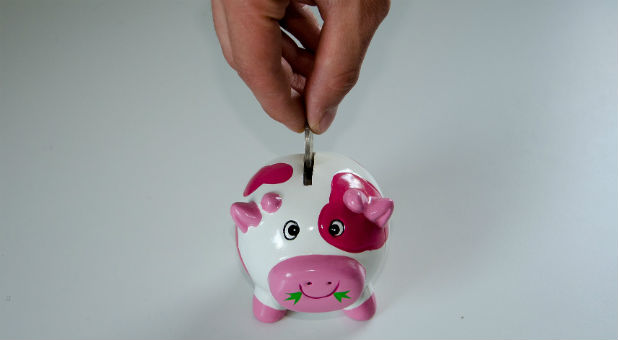Dave Ramsey’s Daughter Has 3 Lessons for Your Kids
A 2015 study reported 80 percent of Americans are trapped in debt. For younger Americans, the number gets worse. In PragerU’s latest video, “How to Raise Kids Who Are Smart About Money,” Rachel Cruze, daughter of Dave Ramsey and regular guest contributor on the Dave Ramsey Show, says the solution to America’s debt problem begins with starting financial literacy at a young age.
Growing up in the home of financial expert Dave Ramsey, Cruze was familiar with the topics of debt and wealth and shares three childhood lessons which prepared her for financial responsibility as an adult.
First, says Cruze, put your kids to work. According to Cruze, it’s important for kids to understand the connection between work and money from a young age and encourages parents to pay kids for age-appropriate jobs like mowing the lawn or cleaning their room. This practice teaches them that money comes from work and not a parent’s wallet. In turn, kids can buy the things they want with the money they earn. “When children work for the things they want to buy, the purchase feels like an accomplishment, not an entitlement,” says Cruze.
The second lesson Cruze shares is to let your kids make mistakes with their money in order to prevent expensive mistakes in the future. As an example, Cruze tells a childhood story of wasting her money during the first game at Opryland Theme Park in Nashville. She quickly ran back to her parents and asked them for money, promising to pay them back. What her father, Dave Ramsey, told her next has stayed with her for her entire life: “Rachel, when the money’s gone, it’s gone.”
Cruze’s third and final lesson is to teach your kids to make saving a habit. Saving is a difficult discipline even for many adults, so start training the saving muscle as soon as possible. Even kids must learn the fundamental truth that if they do not save money, they will not have money.
Childhood is the easiest time to learn saving habits because they are still financially supported by their parents. Children should begin by saving money immediately after getting paid, not from what is left over after buying what they want.
Cruze concludes that it’s less about the amount saved and more to do with developing consistency. “So start today: Help your kids to become fluent in the language of money and how to handle it. Because if you don’t, well, all I can say is—get the basement ready.”






































